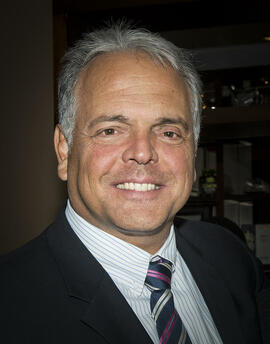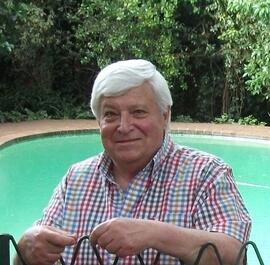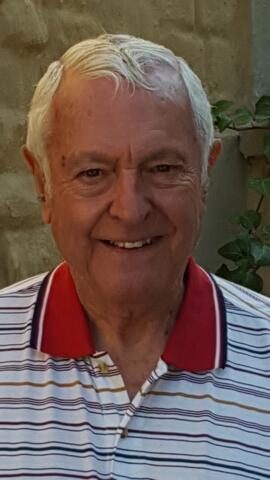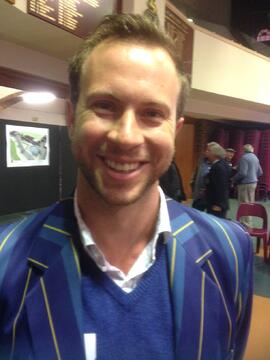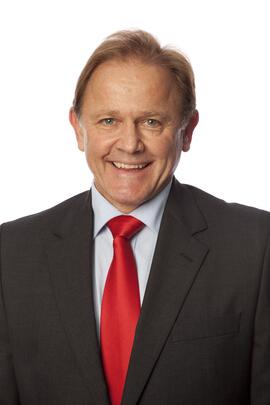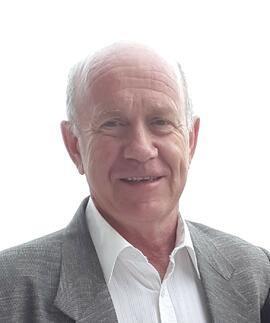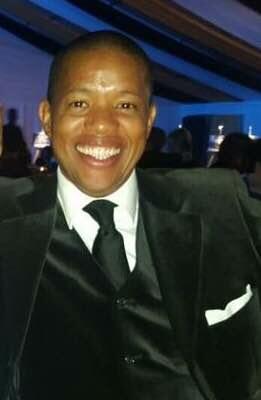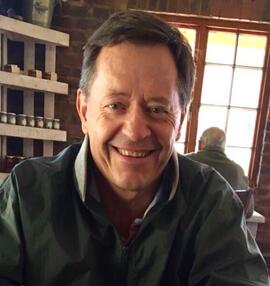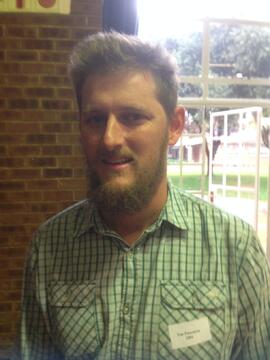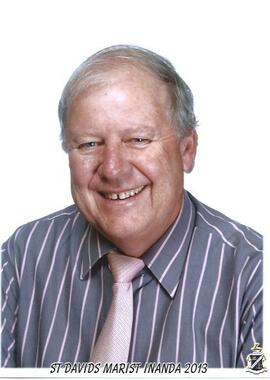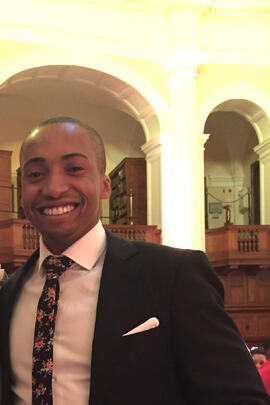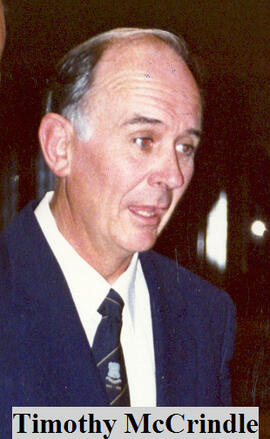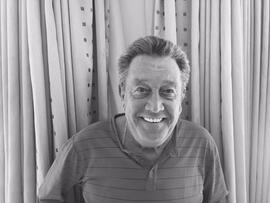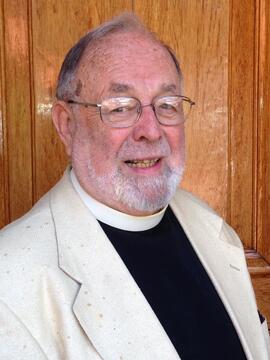Interview with Setty Risi – 1950
This is more of a series of recollections by Setty Risi during his time at Inanda. He was initially
at Koch Street.
Setty joined St David’s or Marist Inanda as it was then known in 1947. That year saw the start of
a transformation the college firstly in the scholastic field with the first junior matric class and in
1948 the first senior matric class began. In 1950 the senior and junior matrics prepared for a
mid-winter exam which was introduced by Br Edwin together with the College of Education in
preparation for the final exams.
The boarding section was situated opposite the classrooms and consisted of four dormitories
with A and B on the top floor and C and D on the bottom. Each dorm housed plus, minus 60
boys. The boarders study and college chapel were located at the opposite end facing the junior
school; the former on the ground floor, and the latter upstairs. The boarders’ dining room and
kitchen faced the quadrangle. The college chef, Piet Tshabalala who retired in 1950, had been
with Marist Brothers for over 40 years and had been personally employed by Br Frederic at
Koch Street. Setty met Br Frederic when he was a boarder at Marist Brothers, Uitenhague. Br
Frederic sadly died 4 weeks before his 100th birthday.
The brothers had their own cottage, which has since been demolished situated directly opposite
the old swimming pool.
The principal of the junior school was Mrs Kempster and the senior school, Br Urban until he
passed away in 1949 and Br Edwin took his place. Br Urban, a strict but fair man, very proud of
the progress achieved during his term as principal, was loved and respected. He believed that
every Marist Inanda scholar should take heed of the college motto – Comfortare Esto Vir –
Strive to be a Man. He had planned a trip to his homeland Australia but died in the presence of
his colleague Br Justin.
Br Edwin was a South African and came from a well know SA family. This was his first post as
principal of a college and his passion was rugby. As a Science teacher many a lesson was
disrupted by his talks on rugby, showing the boys press cuttings from his scrapbook which
described him as an excellent rugby player and a magnificent centre. Whilst he was studying for
the brotherhood, he was being groomed for provincial honours but was seriously injured in a
match suffering severe back and neck injuries resulting in permanent paralysis of the neck. He
was unable to turn his neck to the left or right, nevertheless this did not deter him from
appointing himself as the 1st XV coach. He was nicknamed “Jack Bones” and proved his worth
by turning the 1st XV into a real mean machine. He perfected the scrummaging and backline
with the end result proved his point with the team playing 10 matches, winning 7, losing 2 and
drawing 1.
The staff were Br Bartholemew – cricket coach; Br Alban – rugby and cricket coach who was
transferred to St Henry’s in 1949; Br Thomas; Br John; Br Lewis; Mr B. Singleton; Mr R. Bishop;
Mrs A Basson – Music teacher. In 1948 Br Celestine (Caesar) joined the staff as Maths and
Latin teacher. He was the only teacher who wished to be called Caesar and made it a ritual
every time he started a lesson. The boys would all stand, right arms raised, fists clenched and
shout “Hail Caesar”.
In 1947, rugby was introduced as a sport, two tennis courts were erected and the grading and
making of a new sports field. The new sports field which was used mainly for rugby and cricket
events was called the bottom field of which the top portion is the swimming pool today. Top
fields had three soccer pitches with the main field adjoining Rivonia Road sloping to the second
field and the third field at the back on Boundary Road. In 1948, the grading and levelling of the
main and second soccer field commenced and a turf wicket laid. The main rugby field was
parallel to Rivonia Road, B field adjoined 1st Avenue and one soccer field remained at the back
on Boundary Road. Soccer was restricted to the junior school only and the cricket pitch was
named “The Urban Oval”.
Tennis was in its infancy and there was great competition amongst the boys to represent the
school. Eventually 3 teams were selected and the school had the good fortune to have Jaraslav
Drobny, ex Wimbledon champion as a coach for a week. In1949 the doubles team played 8
matches, winning 6 and the singles champion advanced to the last 8 participating in the U/18
Transvaal championships held at Ellis Park.
Boxing was another popular sport which was initially contested between the houses, Benedict,
Bishops, College and Osmond. In 1949 the only tournament arranged was against Observatory
at Obs. The popularity of boxing was however on the decline and was eventually discontinued.
Swimming was the weakest link in the sports curriculum with mediocre swimmers although the
school did compete in the high school gala at Ellis Park. What the Marist boys, together with
Jeppe High was the highlight was the destruction of the KES school mascot, a giant teddy bear.
This was brought on by sour grapes as KES won this gala year after year.
1948 was quite a year for athletics the highlight of which was the build up to the athletics
meeting against rival Marist Observatory held at Obs. Frank McGrath, against all odds pipped
the Observatory sprinter at the post receiving a replica of the Callixte shield. This shield was
named after Br Callixte and was contested by the junior schools from Marist Koch Street,
Observatory and Inanda. Early in 1949, the athletics track which circled the cricket oval was
completed, this coincided with a triangular meeting against CBC Boksburg and CBC Pretoria
held at the college. The school was fortunate enough to have members of the visiting US
olympic athletics team visit the college as a good will gesture. Their shot putt champion gave
the boys some valuable tips. A floating trophy for athletics was donated to the college by Mr
Julius Risi.
During 1941 – 46, cricket achieved first team status by competing against 1st X1 teams from
other schools ending the season having played 10 matches winning 4, losing3 and drawing 3. In
1948 the Australian cricket team, led by Lindsay Hasseti touring South Africa had a Marist touch
to it as three members of the team were Marist old boys. Amid much excitement they paid a visit
to Inanda and left a signed cricket bat as a memento to be presented to the batsman who
scored the most runs during the season. Sadly the bat went missing in 1949. During 1949 the
1st XI cricket team improved a great deal and 2 members were invited to attend Nuffield week
and, although they were not selected for the team they gained valuable experience..In 1950
there was a short but successful tour of Natal winning 1 and drawing 1 match.
In 1974, soccer had two divisions the U16 and U18. The standard of soccer was excellent with
both teams excelling during the season. The U16 finished second on the log to Mayfair Highland
and the open team, which proved to be one of the best school open teams, played in the U\20
league against such teams as Wanderers, Y.M.C.A., Rangers and Marist.
Rugby was introduced late in the season in 1947 and, due to the excellent coaching and
knowledge of Br Alban, and that many senior boys knew the fundamentals of the game, it took
little time for them to get into the swing of the game. Thirty boys were selected and the best
fifteen were given Ist team status. Setty was the first ever scrum half and played 1st team rugby
for 4 years. The school played 6 games winning 3, losing 2 and drawing 1. As the team was still
in the novice class, 3 of the matches played were against the 2nd XV from Marist Observatory,
Monument and Fakkel, winning the former and losing the latter. The members of the 1st XV of
1947 were reselected for the 1948 season as the college only obtained complete high school
status in 1948, the first senior matric class Marist Inanda was listed as a day scholar and
boarding school. What a season that was. Prior to its start, Br Alban informed the school that
the team would be given full 1st XV status, rugby scrolls would be awarded and the school
would only participate against 1st XV’s from other schools. As 90% other team were boarders
they started their training early in the season and in the evenings after study, talks were given
about rugby. Highlight of the season was the match against the unbeaten, star studded
Parktown Boys. Before the game Br Urban gave an inspirational talk to the team. A walkover by
Parktown was inevitable, however the team performed a David and Goliath act and beat them
11-8. After the match the team created the war cry which was accepted until 1950:-
Killamanaio! – Waa!- Killamanaio – Waa!
Zucka-Zucka-Zunka-Zinca-Zinca-Zaa! Zaa!
Chia-Chia-Chaa! Chaa!
Ina-Ina! Aah!
I-N-A-N-D-A
Marist Inanda
In 1949 the All Blacks toured South Africa and the 7 Marist members of the team were invited
as spectators to a home match with a combined 7 players from Marist Inanda together with 8
from Marist Observatory playing against a combined visiting Marist St Henry’s and St Charle’s
team. Some brilliant rugby was enjoyed by a large crowd with the home side winning 13-10 A
“combined Marist scroll was awarded to the 15 members of the local team by a member of the
All Blacks. The college team ended the rugby season having played 13 matches, winning 8,
losing 4 and drawing 1.The names of the players appear at the end of this document.
The rugby highlights of 1950 were versus Marist Observatory where, before a record crowd,
Inanda recorded their first draw against them, having lost the last 3 encounters. The next game
was against St Henry’s played at the Old Maristonian Club. Br Alban, their previous coach had
been transferred to St Henry’s the previous year, so it was a nostalgic match which Inanda won
5-3 and Br Alban said he was proud of them. The next highly competitive game was against St
Charles in Pietermarizburg. Br Edwin was determined that they should win although St Charles
were far superior with 5 members of their team representing Natal Schools. The team went into
vigorous training weeks before the event with Br Edwin teaching them coded moves which they
perfected. The team was accompanied by Br Matthew and on their arrival at Pietermaritzburg
station on the Saturday morning at 4.00am, after 12 hours travelling prior to the game that
afternoon, they were met by Br Ralph and the team captain. With jeers and laughter Br Matthew
was asked if this was Inanda’s U15 side. Then they were taken to St Charles and told to share
the 8 mattresses that had been prepared in the school hall. This and the negative comments by
their boys did not deter the Inanda team. There was a competition predicting the score which
had St Charles victorious by 60-0. At 2pm they were driven to the main rugby ground as the
game was a curtain raiser to a main fixture between a local side and the Old Marists from
Durban. In front of an enormous crowd of 5 – 6,000 supporters to Inanda’s total of 2, their
linesman and Br Matthew, it did seem as if it were Inanda’s U15 team compared to the weight,
strength and height of the St Charles boys. Five minutes into the game St Charles scored and
converted a try, 5-0. However Inanda’s defence was excellent and they held their own in the
scrum even though St Charles had a tremendous weight advantage. Inanda counteracted this
by packing very low which upset the opposition. After half –time, with the support of the large
crowd the team was fired with enthusiasm and their confidence increased as the game
progressed. A scrum on St Charles try line using a code move, wheeling left instead of right
allowed their flanker to barge over. The try was converted and the game ended in Inanda’s
favour 8-5. In appreciation, a portion of the crowd carried each team member off the field
shoulder high and at the station that evening to see them off, Br Matthew bade a sombre Br
Ralph farewell saying, “ Brother that was our U15 team luckily for you we did not bring our 1st
team”. Br Edwin was a happy man the mighty St Charles had been humiliated.
In 1948 the first matric dance was held in the boarders study.
There was some drama in 1949 with the murder of Bubbles Shroeder at Hlati-Kulu the
magnificent house with its entrance directly opposite the school gates. The police presence with
sirens wailing went on for months which was an exciting time for the boarders who were able to
witness the comings and goings in the evenings and Piet the chef kept the boys well informed
as he was friendly with the chef at Hlati-Kulu.
In 1950 there was an incident when some senior boarders hatched a scheme whereby they
planned to enter Br Florian’s room in the brothers’ cottage to peruse the exam papers, take
notes on the questions asked and give this to their colleagues. This was done without the
knowledge of the prefects or other senior boys. Saturday morning at 7am was selected as the
time when the boarders had their coffee break and all the brothers attended Vespers from 7 –
8am. All went well and the boys accomplished their mission but one of the boys involved
realised that his right glove was missing and he presumed he had left it in Br Florian’s room.
The boys concocted a story whereby they said they were playing with Spotty, Br Florian’s fox
terrier and the dog ran off towards Br Florian’s room with a glove. The boys said they were
wearing gloves because it was so cold. Br Florian said he would investigate and nothing more
was said until a few days later when the whole school was told to assemble in the quad. In
school hours this was most unusual. The culprit was told to repeat his story in front of the whole
school. Br Edwin was furious and accepted that the glove was found in Br Florian’s room,
however it was found not on the floor but under a pile of exam papers. The other boys owned up
and told the truth and fortunately for them Br Edwin believed that no-one else was involved. He
intended to expel them immediately but had a change of heart as they were senior matric pupils
and the final exams were only months away, nevertheless he cancelled all the exam papers.
During this period all the class and sports photos had been taken, colours blazers and scrolls
awarded and Br Edwin was adamant that he would have cancelled all these awards if this had
happened earlier. He decided that no photos, scholastic or sports activities would be included in
the school records for 1950 and would be deleted.
On matriculating, Setty left to join his father’s business in township development of areas such
as Risidale, Lynmeyer etc. The business was sold in 1979 and Setty who loved gardening
joined Kirchhoffs Seeds where he remained until his retirement in 2000.
The names of the players representing the 1st XV
1949 1950
H. Gearing Full Back C. Leon
F.McGrath Wing M. Rogers
M. Gonsalves Wing T.Kilgour
E. Hulse Centre D. Rethman (Capt)
L. Da Cruz Centre R. Gibson
R. Buffa Flyhalf J.Pacheco
S. Risi Scrumhalf S. Risi
K. Kannaugh 8th Man M. Forretti
C. Clarke Flank R. Perino
T. Smyhte Flank A. Zylstra
D. Smith Lock M. Madeyski
P. Spencer Lock B. Babaya
E. Barale (Capt) Front Row P. Cazales
J. Airoldi Front Row R. Kippen
L. Steyn Hooker I. Kealey
JLE April 2013

